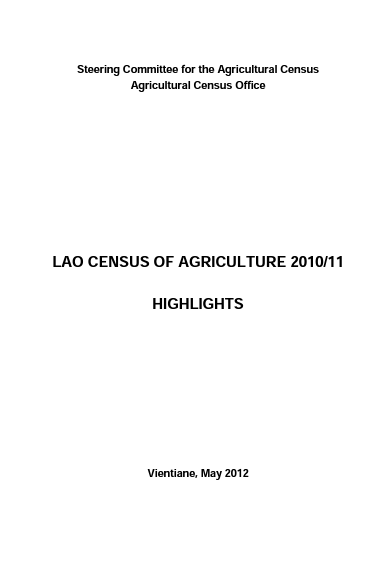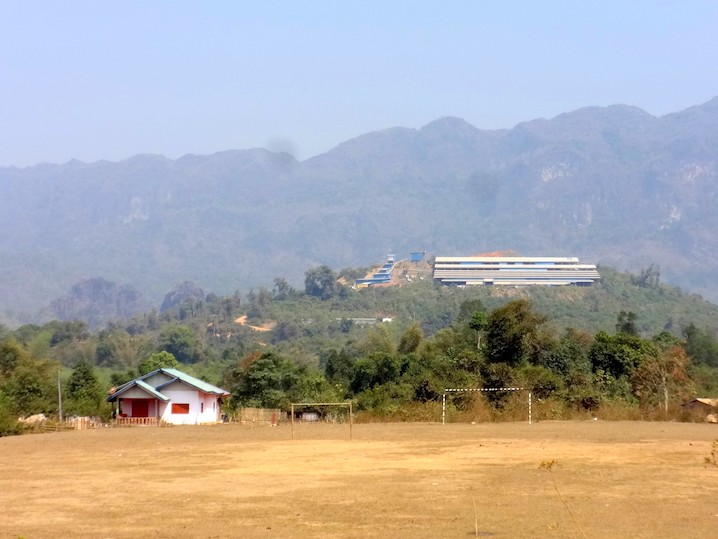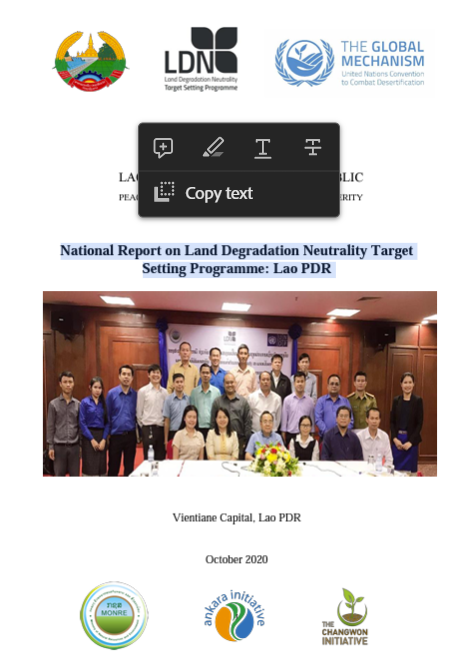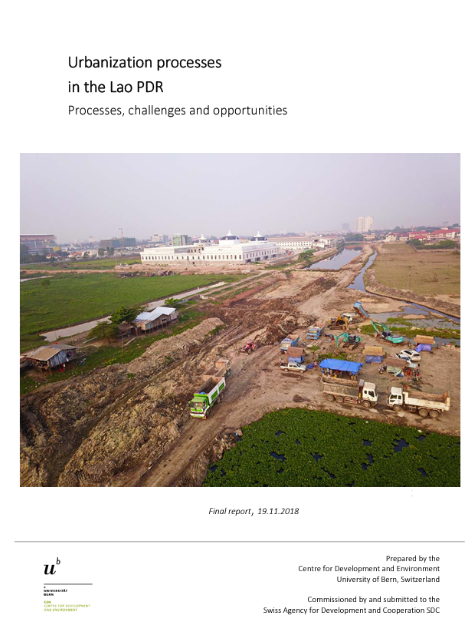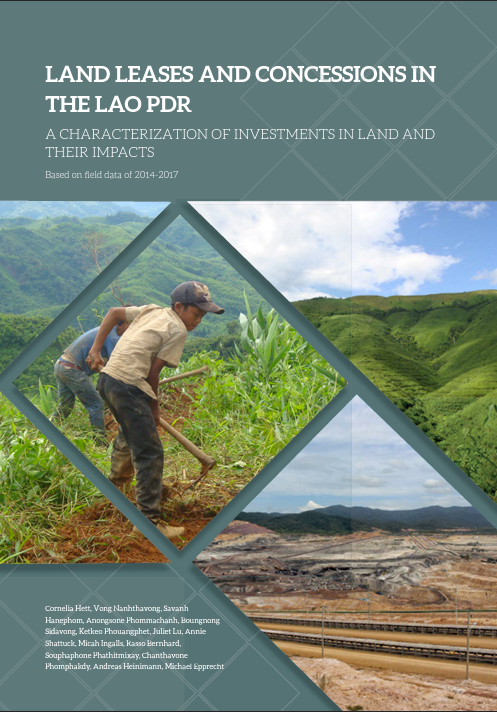
Topics and Regions
Landpages.co.ke is a medium of passing this message.
Details
Public Email
Location
Contributions
Displaying 151 - 160 of 740Obsolete System, Corruption Delay Land Title Registration
Steering Committee for the Agricultural Census. 2011. Agricultural Census Laos
This report presents results of the Lao Census of Agriculture 2010/11. It highlights the major findings of the census, featuring commentary and graphical presentations, as well as some summary tables. Results are shown for each province. The report is available in Lao and English as separate documents. The Lao Census of Agriculture 2010/11 was the second agricultural census undertaken in Lao PDR; the first was conducted in 1998/99. Since the first census, there have been significant changes in the agricultural sector and these changes needed to be captured in another census.
Artisanal, Small-scale and Large-scale Mining in Lao PDR
- Despite eight years of gradual decline due to low global commodity prices, the mining sector in Lao PDR still constitutes a key source of state revenue and an important destination for foreign direct investment, especially from China, Vietnam and Thailand.
- Economic development through industrial mining has not translated into employment opportunities for local communities.
National Strategy on Climate Change of the Lao PDR
Climate change is the greatest challenge facing our generation. It touches all segments of society and it jeopardizes the future prosperity of the global communities, including the Lao People’s Democratic Republic (Lao PDR). In Lao PDR, climate change has resulted in higher temperatures, variable rainfall, longer dry seasons and droughts, and more severe and frequent flood and drought. Droughts and flooding harm agriculture, food security, forest and land use, water resources, energy, industries, public work and transportation, urban and public health.
National Report on Land Degradation Neutrality Target Setting Programme: Lao PDR
In September 2015, the global community agreed on “The 2030 Agenda for Sustainable Development”, including 17 Sustainable Development Goals (SDG) and 169 targets. Goal 15 urges countries to “protect, restore and promote sustainable use of terrestrial ecosystems, sustainably manage forests, combat desertification, and halt and reverse land degradation and halt biodiversity loss”.
BTI 2022 Country Report Lao
While Laos largely avoided the health impacts of COVID-19, the pandemic’s economic consequences exposed existing vulnerabilities, and left the country at the precipice of fiscal and debt crises. At the 11th national congress of the Lao People’s Revolutionary Party (LPRP), held in January 2021, the LPRP reinforced key elements of the regime’s high-stakes economic strategy but also hinted that the pandemic had encouraged a shift in economic emphasis. Even before the pandemic hit, Laos’s economic transformation had started to slow in 2019.
Urbanization processes in the Lao PDR Processes, challenges and opportunities
Here below is a summary of main points and highlights from the study, hoping it will be useful for colleagues that do or do not consider urban dynamics as important and encourage them to integrate some reflections in order to better steer a development program or adapt it. A lot of what is below is relevant to many contexts and some of it is obviously more specific to the Lao PDR. I believe this study is a milestone for adapting programming in the coming four years during this current Mekong Region Strategy 2018‐2021 and paving way for the elaboration of the new strategy.
Land Leases and Concessions in the Lao PDR: A Characterization of Investments in Land and their Impacts, Based on field data of 2014-2017
The management of land concessions and leases in the agriculture, tree plantation, hydropower and mining subsectors (referred to as land deals henceforth) is a crosscutting topic and involves a wide range of agencies of the Government of the Lao PDR (GoL) at various administrative levels, from the granting stage to the supervision and monitoring of progress and compliance.
Resettlement Policy Framework. Vientiane
This document is the Resettlement Policy Framework (RPF) for the second Lao Road Sector Project Additional Financing (LRSP2-AF, AF, or the Project) and is being proposed for possible financing from the World Bank (WB). The proposed Project (LRSP2-AF) builds on the achievements of the second Lao Road Sector Project (LRSP2) and is being prepared to support the Government of Lao PDR (GoL) in the management of the Lao road network. The Project will finance civil works in the form of routine and periodic maintenance and spot improvement to strengthen road climate resilient.
An Assessment of Customary Tenure Systems in the Lao PDR
The history of land rights in the Lao People’s Democratic Republic (Lao PDR), hereafter referred to as Laos, is a history of customary land tenure systems which remain the most prevalent form of land tenure. As social systems, land tenure systems in Laos have been affected by and have adapted to external forces such as neighboring kingdoms, colonialization, geopolitics and war, migration, and global economic trends. Ongoing rapid changes in national socioeconomic conditions and domestic political goals continue to alter the customary tenure landscape.


